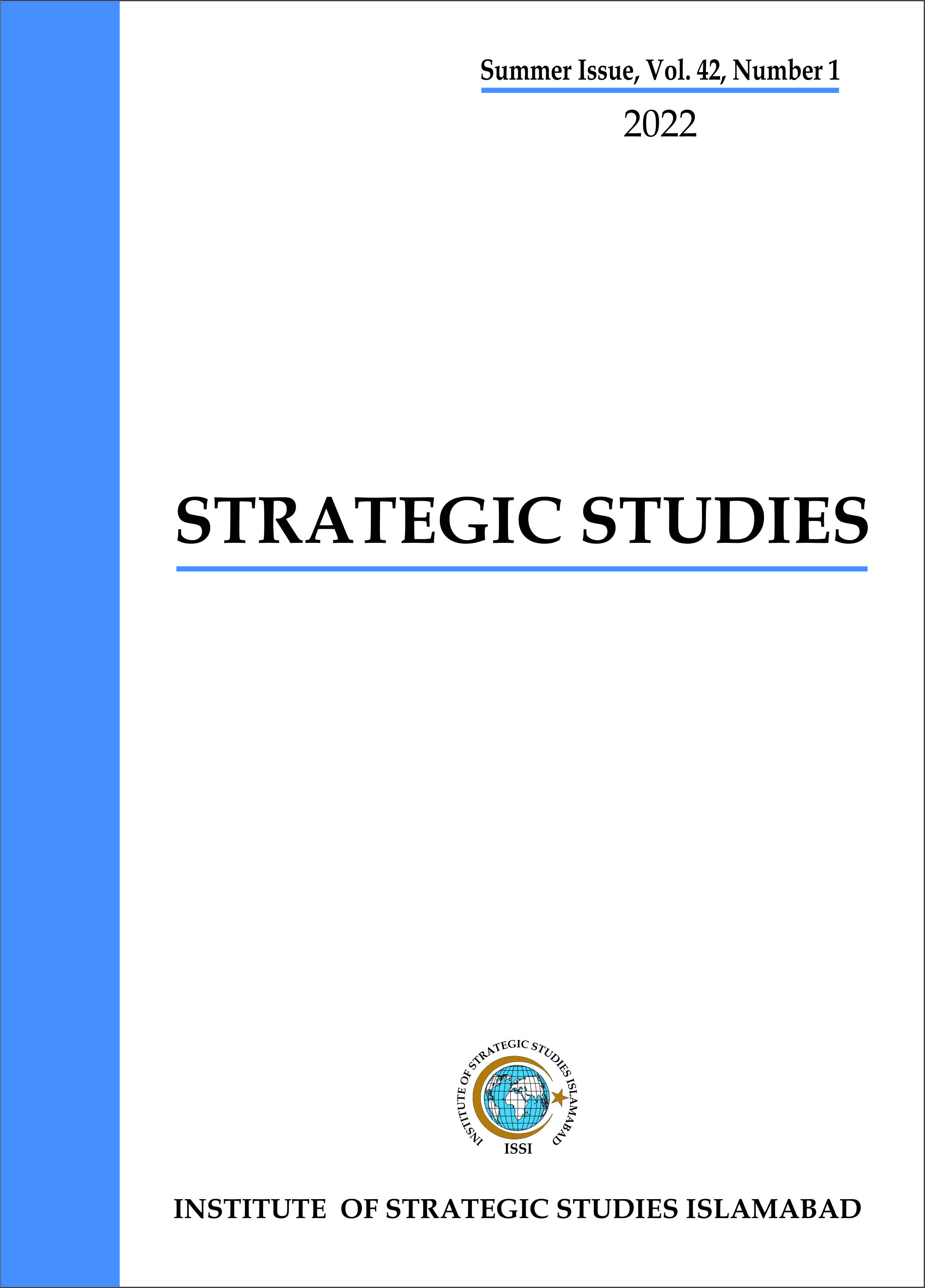3-Cs of Cyberspace and Pakistan: Cyber Crime, Cyber Terrorism and Cyber Warfare
Keywords:
Cyber Crime, Cyber Terrorism, Cyber Warfare, Cyber Realism, Cyberspace, PakistanAbstract
This qualitative exploratory and embedded case study deliberates the nature of 3-Cs of cyberspace ─ cybercrime, cyber terrorism, cyber warfare ─ against Pakistan. What is the nature of mentioned threats associated with cyberspace and how are they impacting the state and society in Pakistan. How Pakistan has been dealing with these threats related to its cyberspace. While taking cue from cyber realism – which provides the basic lens to conduct this research – this study notes that states and state-sponsored individuals, groups and organisations remain the main actors in the cyberspace who are active against each other. The perception that the cyberspace has diminished the role of state is an exaggeration. States still are the most important actors in the cyber world order animated by the typical great power politics. Pakistan remained a prime target of the cybercrimes, cyber-terrorism, and cyber warfare launched by the regional and extra-regional states. Though, it has implemented Prevention of Electronic Crime Act (PECA) and passed National Cyber Policy, yet it still has to go a long way in order to protect itself against the 3-Cs of the cyberspace.

Published
How to Cite
Issue
Section
Copyright (c) 2022 Strategic Studies

This work is licensed under a Creative Commons Attribution-NonCommercial 4.0 International License.



